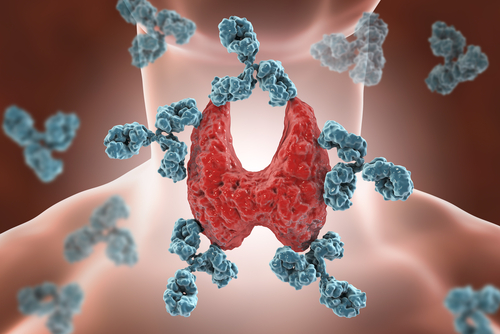Treatment of Thyroid Disorder – Everything You Need To Know

Thyroid disorders are quite common worldwide. India is not far behind; it’s estimated that around 42 million people suffer from various thyroid diseases in the country. With so many thyroid victims in India, the question ‘is thyroid disorder curable?’ is often asked.
Here’s the answer
Yes. Thyroid disorders are curable and can be managed with medication – or, in rare cases, surgery. But, as with all diseases, early diagnosis and treatment remains the cornerstone of effective management. Here we discuss the various thyroid treatments available for the two most common thyroid disorders: hypothyroidism and hyperthyroidism.
Treatment of hypothyroidism
Hypothyroidism is characterised by insufficient production of thyroid hormone by an underactive thyroid gland. So, the patient is required to ingest a synthetic hormone to make up for the deficiency.
Standard treatment: Levothyroxine is the synthetic thyroid hormone given orally to patients to restore hormone levels and dispel the symptoms of hypothyroidism. After one or two weeks they should feel an immense improvement in the symptoms as well as associated abnormalities such as high cholesterol levels. But in many cases, determination of appropriate dosage may take some time. During this period, the doctor may repeat the thyroid profile test many times to know the effect of the dosage on the patient’s hormone levels and associated symptoms.
Progressive hormone replacement: Treatment in patients with severe hypothyroidism or coronary artery disease starts with a smaller dose of levothyroxine, with a gradual increase in the dosage. This is to allow the heart to adjust to the increased metabolism.
How long is medication required?
Treatment with levothyroxine can gradually reduce symptoms and other abnormalities, and medication is usually lifelong. But the levels of thyroid hormones may fluctuate even with medication. A thyroid profile is recommended periodically to keep a check on the levels, and the levothyroxine dosage can be adjusted if required. However, don’t skip doses or stop the medication on your own even if you are feeling fine. Symptoms will gradually reappear and affect you adversely.
Treatment of hyperthyroidism
Hyperthyroidism is characterised by overproduction of thyroid hormone by an overactive thyroid gland. Treatment is done to slow down the gland, so that excess hormone production is controlled. There are many treatments available for hyperthyroidism depending on the patient’s age, cause of the disorder, physical condition of the patient, and severity of symptoms.
- Radioactive iodine: This is taken orally and results in the shrinking of the thyroid gland and slowing of its activity to lessen the symptoms. It usually takes 3-6 months for the medication to bring relief to the patient. But as the medication results in decreased hormone levels, the patient may eventually require daily medication to replace thyroxine.
- Anti-thyroid medications: Propylthiouracil and methimazole are anti-thyroid medications that prevent the production of excessive hormones by the thyroid gland, thereby reducing its symptoms. It takes around 6-12 weeks of medication for the patient to experience relief and typically continues for at least a year, or longer. This may solve the problem for some patients, but relapse is possible. These anti-thyroid medications may cause severe liver damage or sometimes death of the patient, so precaution is required.
- Beta blockers: Beta blockers are given to patients to reduce rapid heart rate and palpitations. This medication won’t slow the activity of thyroid gland, but it can provide symptomatic relief.
- Surgery (thyroidectomy): In some cases where the patient is not able to tolerate anti-thyroid drugs or can’t have radioactive iodine therapy or is pregnant, thyroid surgery can be an option. Thyroidectomy involves removal of most of the thyroid gland. After surgery, the patient is required to take lifelong levothyroxine to maintain a normal amount of thyroid hormone.
Considering the prevalence of thyroid disorders in India, awareness is the main issue. According to a survey by the Indian Thyroid Society, thyroid disorder awareness is at ninth spot compared to other disorders such as asthma, diabetes, depression, high cholesterol, insomnia etc. But now that you know thyroid disorders are curable, spread the word and keep yourself and your loved ones safe.













